Unveiling Cognitive Flexibility: Lab-Tested Magic Mushroom Chocolates’ Brain Impact
Magic mushroom chocolates, enriched with psilocybin, are attracting scientific interest for their co…….
Welcome to an exploration of a fascinating intersection between culinary innovation and neuroplasticity – the concept of “Magic Mushroom Chocolates and Cognitive Flexibility.” This article delves into the world of psychedelic-infused confectionery, examining its potential benefits for cognitive function and flexibility. As modern research continues to uncover the therapeutic properties of psilocybin (the active compound found in magic mushrooms), it has sparked interest in its integration into food products, particularly chocolates. This article aims to guide readers through the complexities of this topic, offering insights into its history, global impact, economic implications, technological advancements, regulatory landscape, and future prospects. By the end, we hope to provide a comprehensive understanding of why magic mushroom chocolates are more than just a novel confectionery trend.
“Magic Mushroom Chocolates” refer to premium chocolate treats infused with psilocybin, the psychedelic compound naturally occurring in certain species of mushrooms. When consumed, psilocybin converts into psilocin, a substance known for its ability to alter consciousness and induce altered states of perception. However, unlike traditional psychedelics, psilocybin-infused chocolates are typically designed to offer subtle effects, focusing on enhancing cognitive flexibility rather than intense psychedelic experiences.
Cognitive Flexibility: This term describes the brain’s capacity to adapt and switch between different thoughts, ideas, or tasks. It is a key aspect of executive function, enabling individuals to navigate complex situations, solve problems creatively, and exhibit mental agility. Research suggests that cognitive flexibility is crucial for overall well-being and can be influenced by various factors, including diet, sensory experiences, and even psychedelic compounds.
The use of magic mushrooms for their psychoactive properties dates back centuries in various cultures worldwide. Indigenous communities have long recognized the therapeutic potential of these fungi, using them in rituals, spiritual practices, and traditional medicine. However, the modern interest in psilocybin-infused chocolates emerged from a growing body of scientific research into its psychological and neurobiological effects.
In the 1960s and 1970s, researchers began exploring the potential therapeutic applications of psychedelics, including psilocybin. This era saw groundbreaking studies on the use of psilocybin for treating mental health disorders such as depression, anxiety, and end-of-life anxiety. As a result, interest in psychedelics waned due to political and social factors, leading to a period of limited research.
However, starting in the 2010s, there was a resurgence of interest in psychedelic research, fueled by new scientific methods and a growing acceptance of their potential benefits. This revival led to the development of food products like magic mushroom chocolates, offering a more accessible and controlled way to explore the effects of psilocybin.
The integration of magic mushroom chocolates into the confectionery market represents a unique fusion of gastronomy and neuroplasticity research. By infusing psilocybin into chocolates, manufacturers aim to create a delightful sensory experience while potentially offering cognitive benefits. This approach leverages the natural properties of mushrooms and translates them into a consumer product with widespread appeal.
In the broader landscape, this concept intersects with several emerging trends:
The concept of magic mushroom chocolates has gained international attention, with various countries embracing its potential. The global psychedelic research community has been at the forefront of promoting responsible exploration of psilocybin, leading to differing regulatory approaches worldwide:
The global functional food market is projected to reach USD 189.7 billion by 2027, demonstrating a compound annual growth rate (CAGR) of 8.4% from 2020 to 2027. Magic mushroom chocolates are part of this growing trend, attracting consumers who view food as a tool for enhancing their well-being. Key trends shaping the market include:
The global psychedelic market, including psilocybin-based products like magic mushroom chocolates, is projected to grow significantly in the coming years. While precise estimates vary, several factors indicate substantial growth:
Understanding the target demographics for magic mushroom chocolates is crucial for marketing and product development. Key consumer profiles include:
Magic mushroom chocolate companies can explore various business models and revenue streams, including:
The success of magic mushroom chocolates lies in the precision with which psilocybin is extracted from mushrooms and infused into chocolate formulations. Several technological advancements have contributed to this:
The market for magic mushroom chocolates offers diverse product options and customization possibilities:
The regulatory environment for magic mushroom chocolates varies across regions, presenting both challenges and opportunities:
Safety is paramount in the production and consumption of magic mushroom chocolates. Manufacturers must implement robust quality control measures, including:
Magic mushroom chocolates, when used responsibly, can contribute to broader conversations around mental health awareness and therapeutic applications of psychedelics:
Integrating magic mushroom chocolates into various cultural contexts can shape consumer attitudes and market opportunities:
The future of the magic mushroom chocolate market looks promising, but several challenges must be addressed to ensure sustainable growth:
To stand out in a growing market, companies will need to focus on innovation and differentiation:
In conclusion, magic mushroom chocolates represent a unique intersection of food, wellness, and consciousness. As the industry matures, responsible innovation, regulatory compliance, and consumer education will be key factors in shaping its future success and impact on mental health awareness.
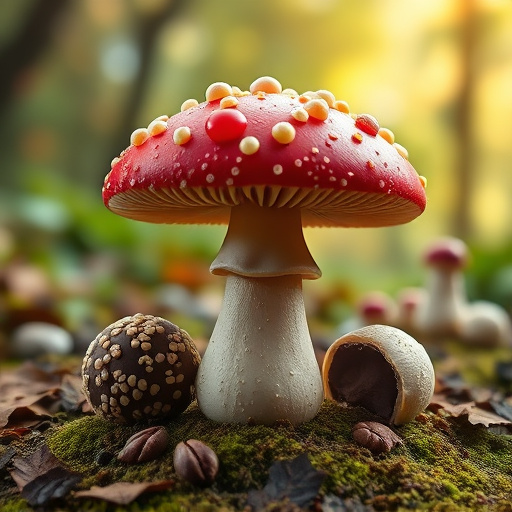
Magic mushroom chocolates, enriched with psilocybin, are attracting scientific interest for their co…….
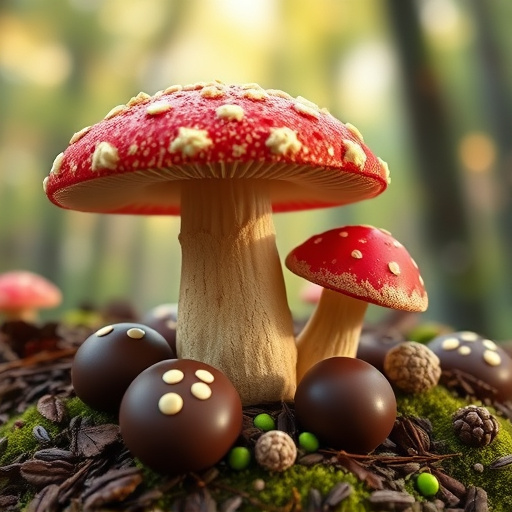
Magic mushroom chocolates, incorporating psychedelic compounds psilocybin and psilocin from ancient…….
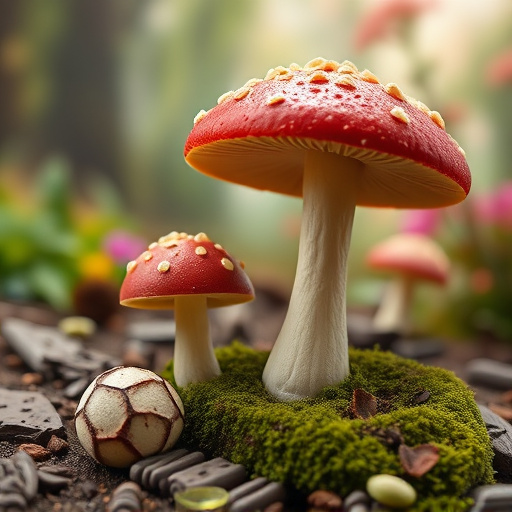
The rise of Magic Mushroom Chocolates combines gourmet sweets with psilocybin, offering a unique exp…….

Magic Mushroom Chocolates are gaining popularity as a unique, accessible way to experience cognitive…….
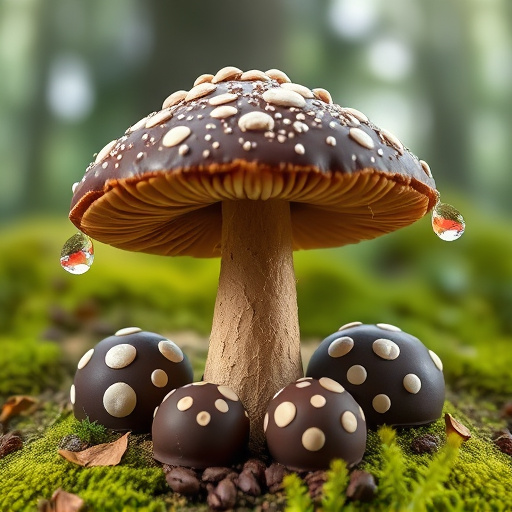
Magic Mushroom Chocolates combine the mood-boosting properties of chocolate with psilocybin, offerin…….
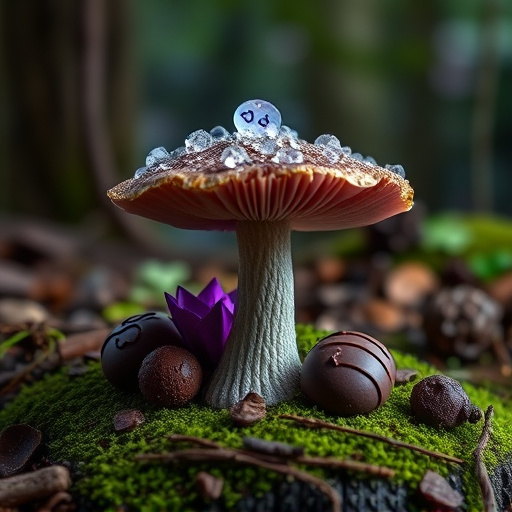
Magic mushroom chocolates, infused with psilocybin, are gaining popularity as a holistic wellness tr…….
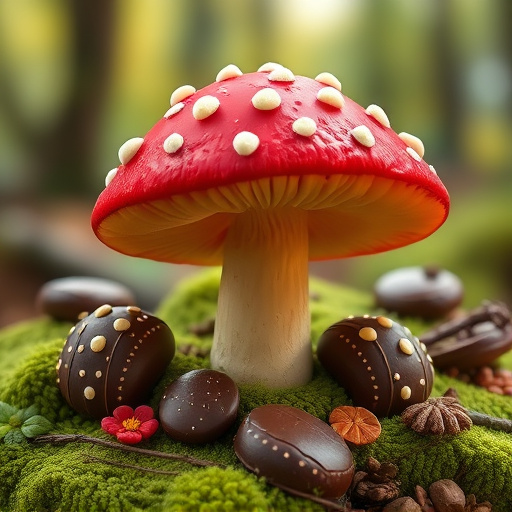
Magic mushroom chocolates, infused with psilocybin from Psilocybe cubensis mushrooms, offer a unique…….
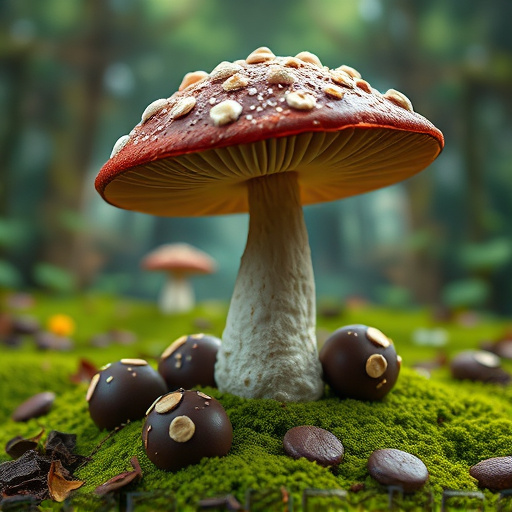
Magic mushroom chocolates blend culinary delight with psychonautic experiences, offering a novel way…….
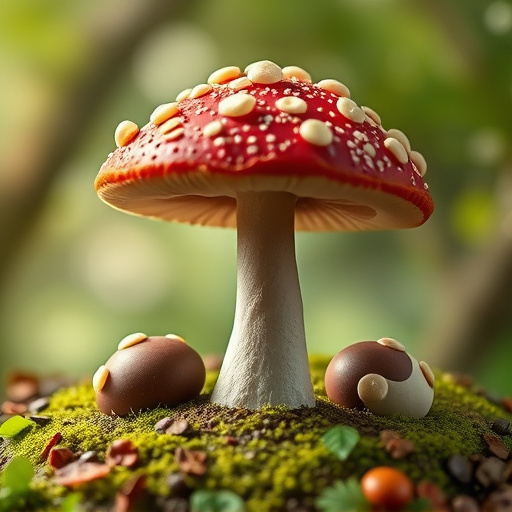
Magic Mushroom Chocolates, driven by demand for unique confectionery, offer more than taste. Infused…….
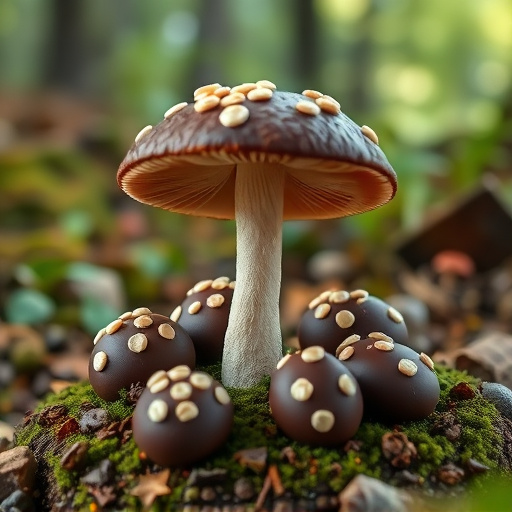
Magic mushroom chocolates, infused with psilocybin, offer potential significant boosts to cognitive…….